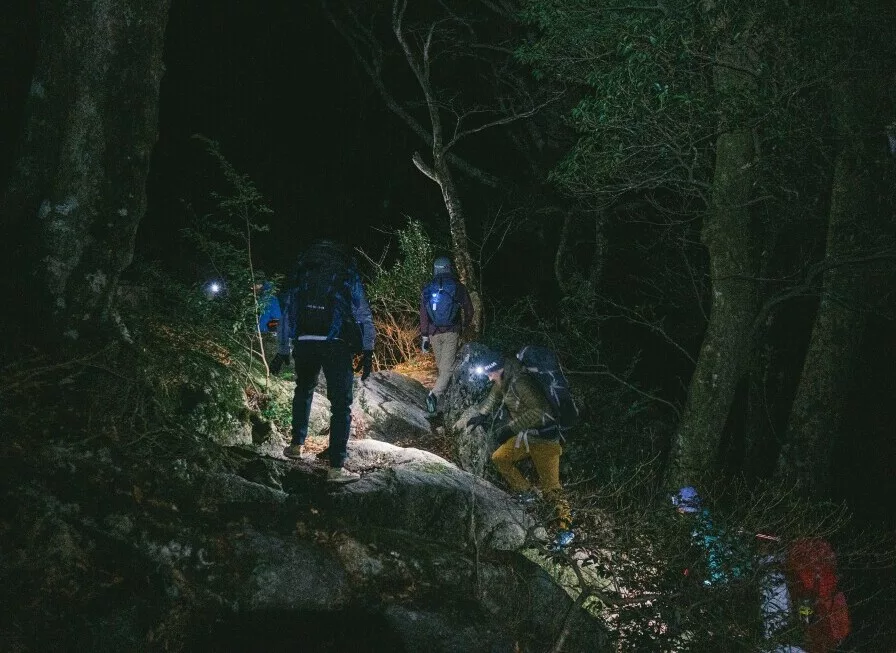Your Essential Guide to Overnight Hiking for Beginners
Embarking on an overnight hiking adventure can be both thrilling and challenging, especially for beginners. Whether you’re stepping into the wilderness for the first time or aiming to enhance your outdoor skills, thorough preparation is crucial for a safe and rewarding experience. My first nighttime hike remains vivid in my memory. It was an unforgettable experience marred only by a knee injury I sustained due to not paying enough attention to my surroundings. Despite the discomfort, I completed the hike, though my knee took a week to fully recover. If you’re gearing up for your inaugural nighttime trek, it’s essential to stay vigilant and well-prepared. Here’s a comprehensive guide to kick-start your journey into nighttime hiking, ensuring you navigate safely under the stars.

1. Plan Your Route Carefully

Before setting off, research and choose a trail that matches your skill level and interests. Opt for well-marked trails like the popular “best overnight hiking trails” that are suitable for beginners. Consider factors such as terrain difficulty, elevation gain, and distance to ensure it aligns with your fitness level and experience.
2. Check the Weather Forecast
Weather conditions can significantly impact your hike and overnight stay. Monitor the forecast closely and be prepared for changes in weather patterns. Pack weather-resistant hiking gear including waterproof clothing, sturdy hiking boots, and a reliable tent or shelter to stay dry and comfortable.
3. Pack Light but Smart

Packing efficiently is crucial for overnight hiking. Focus on essentials such as lightweight camping gear, nutrition-packed snacks, a compact stove for cooking meals, and a durable sleeping bag. Remember to carry a map, compass, or GPS device for navigation, as well as a first-aid kit for emergencies.
4. Hydration and Nutrition
Staying hydrated and well-nourished is essential for maintaining energy levels during your hike. Carry an adequate supply of water or a water purification system for refilling along the trail. Pack lightweight, high-energy snacks such as trail mix, energy bars, and dehydrated meals that are easy to prepare at your campsite.
5. Leave No Trace

Respect the environment and practice Leave No Trace principles throughout your journey. Minimize your impact by disposing of waste properly, avoiding wildlife disturbance, and sticking to designated trails. Leave natural objects and wildlife undisturbed for others to enjoy.
6. Safety First
Prioritize your safety at all times while hiking overnight. Inform a trusted person about your itinerary and expected return time. Familiarize yourself with basic first-aid procedures and know how to recognize and respond to common outdoor hazards such as wildlife encounters or inclement weather.
7. Enjoy the Experience
Finally, take time to appreciate the beauty of nature and the sense of accomplishment that comes with overnight hiking. Capture memorable moments with a camera or journal and cherish the opportunity to disconnect from the hustle of everyday life.
For tips on solo backpacking checkout: A Solo backpacking Guide Made Easy to Follow
Conclusion:
By following these essential tips, you’ll be well-prepared to embark on your first overnight hiking adventure. Remember to plan meticulously, pack wisely, and prioritize safety to ensure a rewarding experience in the great outdoors. Happy hiking!
** Here’s a little transparency. Our website contains affiliate links. This means if you click and purchase, we may receive a small commission. Don’t worry, there’s no extra cost to you. It is a simple way you can help support our mission to bring you quality content. **
(As an Amazon Associate, I earn from qualifying purchases)